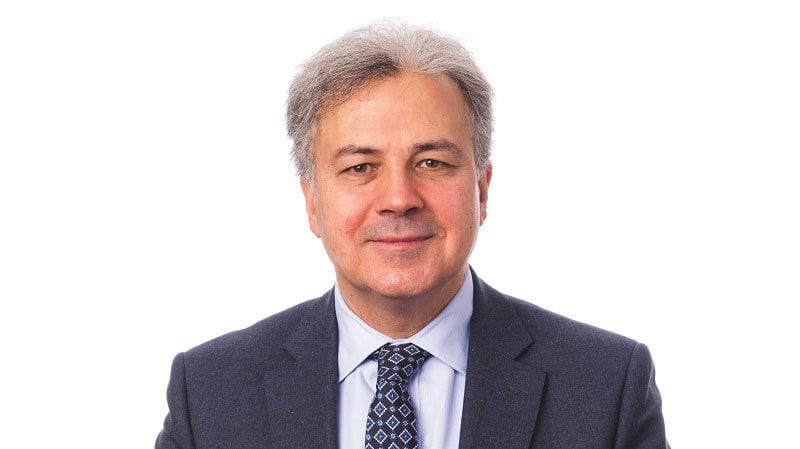Asset management heavyweights Blackrock, Aviva Investors and Federated Hermes have told a Treasury select committee how the industry can play its part ahead of next year’s COP 26 in the transition to a zero carbon economy by 2050.
With COP 26 due to take place on home soil in Glasgow in November 2021, the focus is on how the UK investment industry can address climate change through its products and how it engages with the companies it invests in.
Even the Pope is putting the pressure on the industry to act. According to Reuters, last weekend his Holiness said: “One way to encourage this change is to lead companies towards the urgent need to commit to the integral care of our common home, excluding from investments companies that do not meet (these) parameters… and rewarding those that (do).”
COP 26 is a chance to address the ‘world’s biggest market failure’
On Wednesday Aviva Investors chief responsible investment officer Steve Waygood told a Treasury select committee panel session on decarbonisation and green finance, that climate change is the “world’s biggest market failure”.
“What we need to do is to support, encourage and, if you like, cajole or lobby for changes to the system to correct the market failure,” he said.
Waygood was giving evidence to MPs during a virtual session alongside Federated Hermes chief executive Saker Nusseibeh (pictured), Blackrock global head of investor stewardship Sandra Boss and Association of British Insurers director general Huw Evans.
Waygood argued with the UK scheduled to host COP 26 next year, as well as the G7 summit, it presented “a very rare alignment of some very big geopolitical opportunities” to refine and reboot the industry’s global effort on becoming carbon neutral.
He said while the COP 21 Paris Agreement from 2015 was a huge diplomatic achievement for foreign ministers, it didn’t result in companies being required to set out exactly what they mean when they vow to “support Paris”. As it stands, reporting under the Task Force on Climate-related Financial Disclosures (TCFD) regime remains voluntary, he noted.
“We have the ‘what’ as a result of Paris, we don’t have the ‘how’,” he said. “The big prize for COP 26 is to chart that roadmap and from financial institutions’ perspective, we’re in a position to inform what is doable.”
Waygood said what is needed is a “Marshall Plan for the planet” and the UK is perfectly positioned in the coming 14 months to make that vision a reality. He said regular discussions with officials at the Cabinet Office and the Treasury had been progressing well.
“It’s very early days, but we think we’ve got a very big idea and there’s a coalition of others working alongside us; some 70 people now turn up to phone calls every few months to discuss what we’re going to do to support policy makers deliver a really big COP 26.”
Institutional investors continue to lead the way
In the meantime, institutional investors are leading the way. Last week the £2.8bn Church of England Pensions board announced it had divested entirely from Exxon Mobil because the oil giant had failed to set goals to reduce emissions produced by its customers. Similarly, earlier this week the £14bn National Grid Pension Scheme decided to divest from thermal coal.
This positive movement from the largest asset owners is filtering down to retail investors and asset managers are playing their part in getting the message across to clients.
On Wednesday, Legal & General Investment Management (LGIM) published its annual Climate Impact Pledge under which it will now rate investee companies on their green credentials using a traffic light system. The firm will make publicly available on its website climate ratings for over 1,000 companies under a red, amber or green rating.
Companies that fall short – ie lacking comprehensive disclosure of emissions or key sustainability certifications – will be subject to a vote against and potential divestment from select funds.
LGIM chief executive Michelle Scrimgeour said: “As governments around the world are set to announce new and ambitious climate policies ahead of next year’s COP26 conference, investors must also step up. Through our engagement programme renewed to align with the net zero challenge, we want to help steer companies and our clients towards success in a low-carbon world.”
In terms of creating “exciting” products for consumers in order to spur them into embracing the climate change theme, Nusseibeh said Federated Hermes is “very careful about not creating new product for the sake of creating new product”.
Federated Hermes’ preferred approach is to focus on products that integrate ESG over the long term in order to deliver outperformance.
He said: “There is a place for impact investing and we’re very much in that sphere, and there’s a space for people who want to invest particularly in the SDGs. But I think all mainstream investing should incorporate ESG as a matter of course.”
Will asset managers always fund oil and gas?
During the select committee session, members of the panel were asked by Labour MP Mike Hill, the direct question: when will you and others cease to fund oil and gas?
Blackrock’s Boss said the firm made a commitment in January to stop financing coal in the context of its active equity and debt portfolios. As part of this, companies that generate more than 25% of revenues from thermal coal production are being removed from active investment portfolios.
“We have now introduced coal screens in any of the products where we have discretion over the formation of the product,” she said. “Increasingly, we are doing this.”
But she added if a client requests an index that contains coal, there are places where in the legacy portfolio that still exists, although the firm continues to engage with clients and portfolio companies in this area.
“In addition to the climate concerns, from a risk-return perspective this is a risk that we don’t advise our clients to be in, but that remains in the indices in some cases,” she said.
Boss also noted that some oil and gas companies are successfully managing the transition.
“I think everybody in this room, who’s an investor, has investments that include companies like BP, which is an oil and gas company that’s making the transition. We do offer a product set. If someone says, ‘I don’t want to invest in any fossil fuel’, we have that offer and that is the predilection of some of our clients, but most of our clients share our view that there is an appropriate investment strategy in oil and gas companies, many of them are very well managing the transition.”
She said those that are not managing transition well are increasingly finding their cost of capital escalate. “So, over time, our clients’ assets are ever so gradually shifting toward the [companies] who are superior performers on sustainability.”
Waygood added investors will only cease to fund the oil and gas industry when it is “made to be about investment”.
“The way it is made to be about investment is by government doing the transition plans towards net zero effectively soon, and internalising the cost of capital, where it should belong,” he said.
Divestment should be the last course of action
Panellists were also asked about divestment as a strategy to bring about change on carbon emissions, something Waygood is strongly opposed to.
“Divestment should only be the last course of action, not the first,” said Waygood. “Divestment should represent the end of a failed engagement process, we should all use all the rights at our disposal… to affect and power change.”
Waygood said Aviva Investors is also a “big investor” in BP and given its new strategy mix expect to continue to be. “If it’s successful it will be reducing the global emissions by more than the UK’s current emissions by 2050 per year, which is incredible.”
But he said to power the transition, “you don’t do that by walking away, you do that by being a patient owner and voting with your vote before you vote with your feet”.
“Part of me would love to put all of our money into the fossil fuel sector so that we’ve got… greater power to mobilise more rapidly but that’s clearly not a very sensible investment strategy,” he added. “That’s to make an extreme point that divestment calls to action aren’t actually calls to action at all, it’s for us to use our voice, and our votes.
“We are here to power that transition by correcting the market.”











